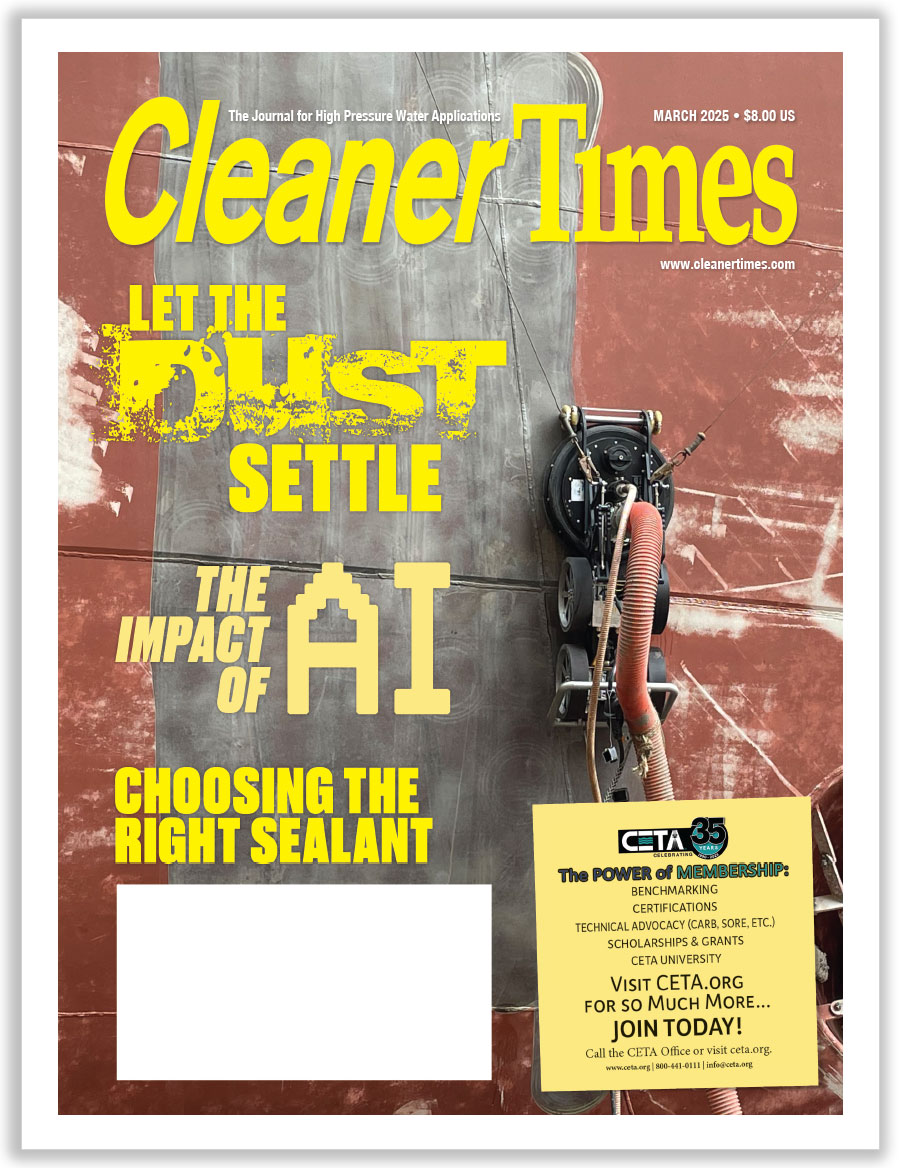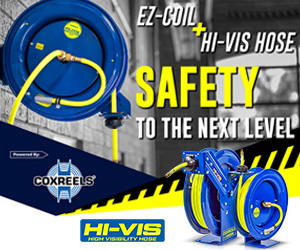
The History of Pressure Washing: Evolution of an Industry, Part Nine: Industry Collaboration: Three Key Organizations
By Terri Perrin / Published November 2014
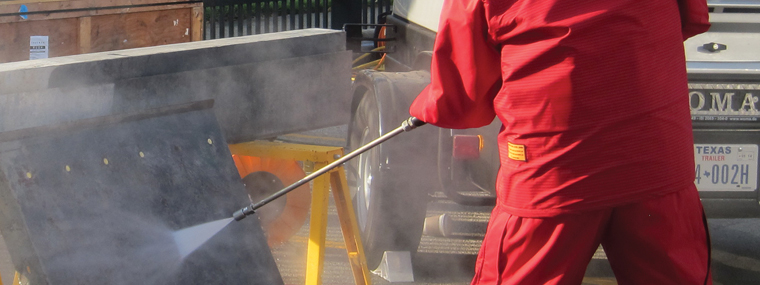
Editor’s Note: This is the ninth in a multi-part series that traces the history of the pressure washing industry from the mid-1970s to present day. An 18-part history series, that covered the early history, was first published in Cleaner Times|IWA beginning in February 1996 and reprinted beginning in March 2007. Those interested in reading the early industry history, or who may have missed the first installments of this new series, may view them on-line at http://cleanertimes.com/artgrp.cfm?fpid=82.
While there have been several pressure washing industry-related associations formed over the past 30 years, we have elected to highlight three organizations that have been pivotal in the growth of this business sector in North America and beyond. We extend thanks to the volunteers—past, present, and future—who embrace the collaborative spirit in an effort to ensure the pressure washing industry is safe for the people who work in it and for the environment.
WaterJet Technology Association–Industrial & Municipal Cleaning Association (WJTA–IMCA) — www.wjta.org
WJTA was formed in 1983 to sponsor and organize biennial conferences on waterjet technology and to develop codes of practice and safety for the waterjetting industry. The prime movers in the formation of the WJTA were Dr. Fun-Den Wang of the Colorado School of Mines and Dr. David Summers of the University of Missouri-Rolla (now known as the Missouri University of Science and Technology). Wang and Summers were mainly interested in waterjet technology relating to the mining industry but, in short order, the WJTA expanded to include cleaning, cutting, and demolition.
In 2009, a special interest group within the association was formed for members who have an active interest in industrial and municipal cleaning. The Industrial and Municipal Cleaning Association (IMCA) provides a focused forum for members who are involved in industrial cleaning to communicate with each other, share ideas and knowledge, and foster closer collaborations.
WJTA–IMCA Manager, Peter Wright, works out of the association’s offices at Birenbaum & Associates in St. Louis, MO. He is responsible for managing a membership base of about 900 individuals and 200 corporations, on six continents. Membership includes representatives from high pressure waterjet and industrial vacuum equipment users, manufacturers, distributors, researchers, regulators, and consultants.
Wright explains that the collaborative nature of WJTA–IMCA members was apparent early on, as a wide variety of stakeholders and competitors came together to develop recommended practices for waterjetting safety in 1985 and a new document for vacuum trucks in 2009. These documents have helped contractors in North America and abroad to perform their work safely and efficiently.
WJTA–IMCA serves its members by disseminating information through a number of channels. These include the periodical Jet News, a number of valuable safety manuals and videos, publishing articles in technical journals, their biennial convention, and more.
WJTA–IMCA has also produced a medical alert card that is carried by many waterjet workers. This card gives advice to attending physicians regarding treatment of injuries by waterjet penetration into the human body. Because these accidents are rare, many emergency room physicians have no experience with injuries caused by waterjets. To date, WJTA–IMCA has distributed more than 120,000 WJTA–IMCA medical alert cards, which are carried in the wallet of waterjet workers.
In 2011, at the request of its members, WJTA–IMCA introduced a system of color-coding high-pressure hoses. This system is a stellar example of how the Association works in collaboration with its members to develop systems that can be implemented industry-wide and have a significant effect on worker health and safety.
After holding their conference and expo in Houston, TX, for many years, WJTA–IMCA relocated to New Orleans for 2014. More than 900 delegates from around the world attended their convention on October 14 and 15. They visited the exhibit halls, watched live demonstrations that introduced new equipment and technologies, attended educational seminars, and, of course, networked in a spirit of collaboration.
Cleaning Equipment Trade Association (CETA) — www.ceta.org
CETA is a hybrid, having evolved from two existing organizations. The Cleaning Equipment Manufacturers Association (CEMA) was originally formed to address common needs and opportunities of the pressure cleaning industry. The Association of Pressure Washer Distributors (APD) was formed by distributors to address the needs and opportunities for their future in the pressure cleaning industry. In 1990, the two associations joined forces, bringing their common goals for the pressure cleaning industry together.
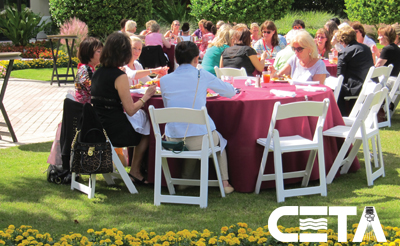 CETA membership is comprised of two-thirds distributor members with the remaining one-third of members representing manufacturers, suppliers, and affiliated industries. The association is headquartered in Oklahoma and currently has a membership of about 200 worldwide. They have worked diligently to develop and deliver a number of educational and certification programs. This has helped everyone in the industry, but especially those that manufacture, sell, or work with hot water systems.
CETA membership is comprised of two-thirds distributor members with the remaining one-third of members representing manufacturers, suppliers, and affiliated industries. The association is headquartered in Oklahoma and currently has a membership of about 200 worldwide. They have worked diligently to develop and deliver a number of educational and certification programs. This has helped everyone in the industry, but especially those that manufacture, sell, or work with hot water systems.
Terry Murray, Etowah Chemicals, Alabama, attended his first CETA convention and trade show in 1990 and became an active member. He is the immediate Past President of the organization and has served on the membership, nomination, and benchmarking committees and as a liaison to the Education Foundation.
“I have met so many different people at CETA events over the years,” states Murray. “The networking opportunities there facilitated some really good business connections and friendships for me. Today, while overall membership is still on the rise, with the consolidation of manufacturers and a decreased number of distributors, CETA is going through another transformation period.”
Murray explains that the CETA Board of Directors, on behalf of the membership, have further embraced the spirit of collaboration by co-locating their 2014 annual event with another popular trade association. “This year is an especially exciting one for CETA,” adds Murray, “because we co-located with ISSA/INTERCLEAN® Orlando 2014 (November 4–7) for our annual trade show. The CETA pavilion was on the trade show floor. Some 16,000 delegates attended ISSA/INTERCLEAN, so the opportunity for CETA members [and other conference delegates] to reach prospective customers was great.”
“CETA is, like each of us, always looking for ways to engage, grow, and prosper in a changing world,” says Association President, Rick Wendt. “Profitability, professionalism, and integrity are of paramount importance to our members, even in the face of keen competition. From technical, certification, and education programs, to opportunities to increase profitability through benchmarking, CETA offers its members solid assistance with the logistics of business. In addition, there are scholarships for members’ children, leasing programs with discounted rates, and alerts on lost/stolen equipment.
“I feel blessed to have been part of the execution of recent changes for CETA members,” concludes Wendt. “Our board has a great mix of professionals spanning three generations. The members are always our first priority. Every decision we make is an effort to make the organization stronger.”
Power Washers of North America (PWNA) — www.pwna.org
Founded in 1994 by Robert Hinderliter and Joseph Walters, the PWNA was created to be a voice for power washing contractors. The PWNA is now a recognized leader in developing and communicating the highest standards in ethical business practices, environmental awareness, and safety through continuing education and the active representation of the membership. The organization embodies all power washers, from aerospace cleaning, to concrete cleaning, fleet washing, kitchen exhaust, wood restoration, and everything in between. PWNA operates out of St. Paul, MN, and has a membership of about 250.
The document filed for the non-profit, to be governed by a board of directors, lists PWNA’s original founders as: Robert Hinderliter, Jordan MacEachern, Rob Carey, Manzie Lawfer, Doug Latimer, Joseph D. Walters, Lores Foreman, Albin Rabalais, Daryl Mirza, Michael Hin-derliter, James M. Gage, and Chuck Hoffman. Several of these men have contributed to the industry in many ways throughout this time. Some are still active volunteers.
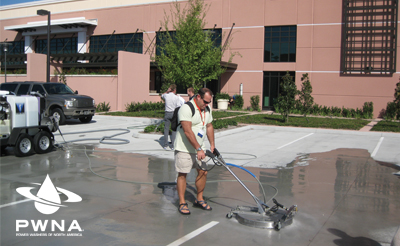 Charlie Arnold, Arnold Power Wash, Lewes, DE, is the current Vice President and President-Elect for the PWNA. He has been involved with the organization since 1999. “PWNA has been a forerunner in industry certification programs,” explains Arnold. “I took the wood certification back in 2000, with Everett Abrams. That class, for example, inspired me to increase my business and to get more involved with PWNA. It was in that class that I decided that one day I wanted to be the instructor teaching others how to grow their business, too. Now, not only do I teach, but I have helped write several classes, re-written the bylaws with help from the board of directors, and recently written the first actual business plan PWNA has ever had, looking five years out. I have served on several committees, and served as secretary for many years. My company would never have survived the economic downturn if it had not been for the things I learned each year at PWNA’s annual convention. I can remember one year I came home from the convention with ten pages of notes listing actionable items to help me grow my business. I was able to implement about 95 percent of them.”
Charlie Arnold, Arnold Power Wash, Lewes, DE, is the current Vice President and President-Elect for the PWNA. He has been involved with the organization since 1999. “PWNA has been a forerunner in industry certification programs,” explains Arnold. “I took the wood certification back in 2000, with Everett Abrams. That class, for example, inspired me to increase my business and to get more involved with PWNA. It was in that class that I decided that one day I wanted to be the instructor teaching others how to grow their business, too. Now, not only do I teach, but I have helped write several classes, re-written the bylaws with help from the board of directors, and recently written the first actual business plan PWNA has ever had, looking five years out. I have served on several committees, and served as secretary for many years. My company would never have survived the economic downturn if it had not been for the things I learned each year at PWNA’s annual convention. I can remember one year I came home from the convention with ten pages of notes listing actionable items to help me grow my business. I was able to implement about 95 percent of them.”
The PWNA prides itself on the creation and implementation of what it has identified as the four pillars of industry. The four pillars include education, networking, conventions, and being a united voice for our industry. They also impact local communities through a unique program called Clean Across North America.
PWNA’s Annual Convention—November 1–3, 2014, Orlando, FL—is a highlight of the year for its members. In addition to a trade show and plenty of networking and social opportunities, educational highlights include certification programs for flatwork, house washing, roof cleaning, wood restoration, environmental, and fleet washing. Other non-certificate programs and courses include OSHA Training, Chemical Safety, Nuts and Bolts of a Business Plan, and Taking Your Business into the Millions, to name a few.
“The networking, relational building opportunities, and late night talks with others in the industry at the PWNA shows have been priceless.” concludes Arnold. “I have been to some of the other round tables held by other organizations; they have been helpful, but I have gotten the most from the PWNA.”

